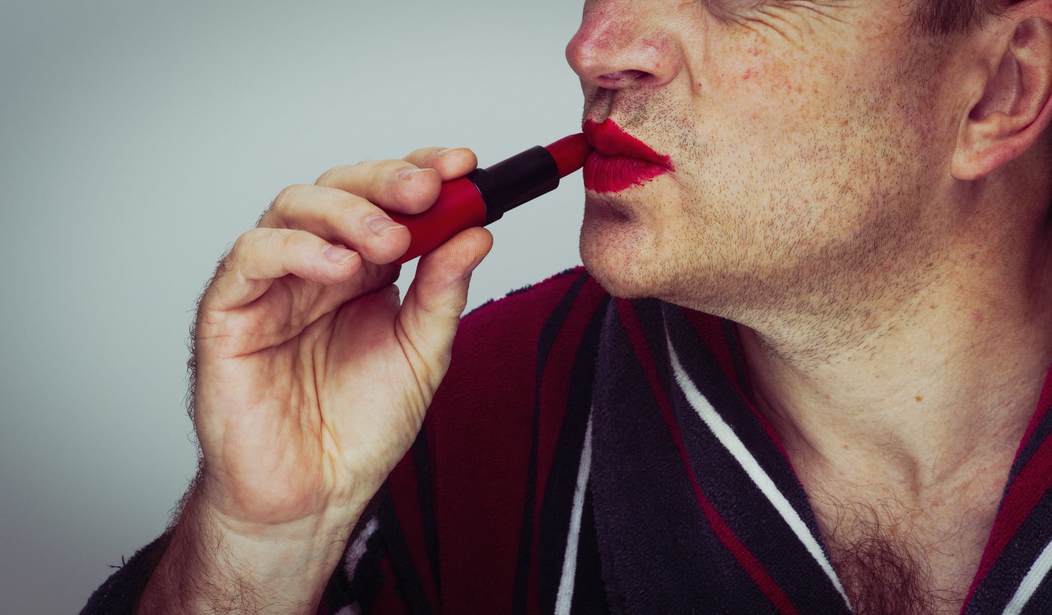Is it okay for guys to cry? Wear pink? Do yoga? You can find these questions — and many more like them — on the website for deodorant company Axe (where, by the way, the answer to these questions is always “yes”). For some reason, Axe believes that fighting the “limitations” of manhood is a viable way to sell deodorant. Makeup company Jecca wants us to know that #MakeupHasNoGender. A few years ago, food retailer Système U wanted us to have a #GenderFreeChristmas in order to sell… food? Across the country and the world, advertisers are scrambling to deal with what some are calling “the end of masculinity.” For companies whose products have traditionally been aimed at a specific gender, this is now the question of the day: how do we sell our products in a world where the acknowledgment of gender difference is seen as a form of bias?
Faith Popcorn (I didn’t make that up, that really is her legal last name) is the CEO of marketing consulting firm BrainReserve and the author of three bestselling books about marketing. According to Popcorn (this is never going to get old), advertisers have a responsibility to give men the “tools” to “fix” the world of masculinity. “The world men created and ruled doesn’t work anymore,” Popcorn says. Advertisers, apparently, need to reinvent it.
Popcorn is not alone (it’s got salt, and butter, and . . . okay, I’m sorry, I’ll try to stop. No guarantees though). In the U.K., for example, the Advertising Standards Authority has banned “gender stereotypes” from advertising. “Advertising standards can play an important role in tackling inequalities and improving outcomes for individuals, the economy and society as a whole,” explained ASA CEO Guy Parker. Under this mandate, ads that show, for example, “women being left with sole responsibility for cleaning up a family mess” are no longer allowed. (This ban would, presumably, stay in effect even if market research indicated that “gender stereotypes” would be the best way to sell the product.)
According to Popcorn, advertisers have a responsibility to “be a helpline for men who feel scared, powerless and angry as they resolve their vulnerability, confusion, fury.” She suggests that brands offer men a “chat room with a therapist,” “some meet-ups,” or some kind of “skill-building.” “Guide them,” she explains, “and get their loyalty.”
In other words: create a new image of masculinity, steer men toward it, make them believe they need psychiatric help if they don’t identify with it, and then sell the heck out of your gender-bender products. Oh, and by the way, Popcorn reminds advertisers, “Men with lower incomes and education are the most likely to revert to stereotypical tough-guy behavior.” She warns advertisers to be extra aware of those unenlightened, subhuman peons and “give them the tools not to” revert to the masculine “stereotype.”
There’s only one problem: over and over again studies have shown that gender is not a social construct and that many of the behaviors these advertisers are labeling as “stereotypes” are, instead, gender preferences. Which means that, rather than responding to the needs and wants of their consumers, these advertisers are helping to create a false image of gender. Popcorn’s insistence that advertisers become therapists, social workers, and life coaches proves this. If people were already yearning for gender-neutral products, why would they need therapy in order to accept them? And if people are not yearning for this kind of product, why would advertisers want to deliver them? Surely the bottom line ought to be… well… the bottom line.
Popcorn and others like her (trail mix, pretzels, corn nuts . . . I’m sorry, I’m done now, I promise) aren’t selling products — they’re advocating for social change. But if men with “lower incomes and education” — otherwise known as regular people — respond to the traditional imagery of masculinity, then how does giving them something other than that help sell your product? Answer: it doesn’t.
SJWs operate on the premise that their view of the world is correct and anyone who disagrees is part of the problem and needs to be re-educated. The fact that advertisers are jumping on the SJW bandwagon creates the possibility that the world we see on TV and online will have very little resemblance to the world as it actually is — or even less resemblance than it had previously, at any rate. And that sounds like the plot of some sort of dystopian post-apocalyptic melodrama. And all I can say to that is: #Resist! (And stockpile popcorn, but not Popcorn . . . I really am done now. Sorry.)









Join the conversation as a VIP Member